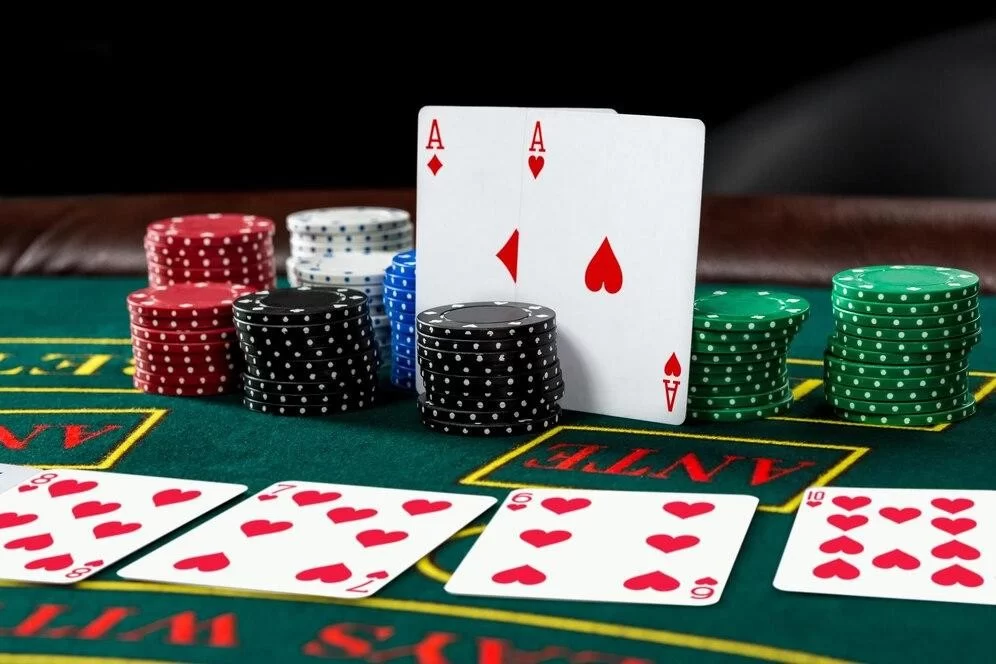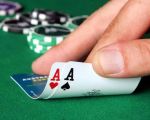
Understanding the Basics of Poker: A Beginner's Guide
When I first started playing poker, I was a bit overwhelmed by all the different rules, strategies, and terminology. However, after spending hours at the table and studying the game, I realized that poker is more than just a game of luck; it's a game of skill, psychology, and strategy. Whether you're playing casually with friends or competing in online tournaments, mastering the fundamentals can help you maximize your chances of winning.
Poker is typically played with a standard 52-card deck, and the objective is to form the best possible hand or bluff your opponents into folding. The game can be played in various formats, but Texas Hold'em and Omaha are the most popular variants. To get started, you'll need to familiarize yourself with the basic poker hands and their rankings.
Poker Hand Rankings: A Quick Overview
Before diving into strategies, it's crucial to know the poker hand rankings, as they determine which hands beat others. Here’s a quick rundown:
- Royal Flush: A, K, Q, J, 10, all of the same suit.
- Straight Flush: Five consecutive cards of the same suit.
- Four of a Kind: Four cards of the same rank.
- Full House: Three of a kind plus a pair.
- Flush: Five cards of the same suit, not in order.
- Straight: Five consecutive cards of any suit.
- Three of a Kind: Three cards of the same rank.
- Two Pair: Two pairs of cards of the same rank.
- One Pair: Two cards of the same rank.
- High Card: If no one has any of the above, the highest card wins.
Knowing these rankings is essential because they allow you to determine whether you have a strong hand or whether you need to fold.
Maximizing Your Odds: Essential Poker Strategies
Once you've grasped the basics of poker, it’s time to start working on maximizing your odds and improving your chances of winning. Poker is a dynamic game that requires both skill and psychological awareness. Here are some key strategies that I’ve found to be useful in increasing your odds of success:
1. Start with Tight Play
One of the best pieces of advice I can give to any beginner is to play tight, especially in the early stages of a hand. This means only playing strong hands and folding weak hands. While it can be tempting to get involved in every hand, especially when you’re new, playing tight gives you the advantage of playing fewer hands but with higher probability of winning. In my experience, I’ve learned that it's better to wait for a strong hand and pounce when the time is right.
2. Be Aggressive When You Have a Strong Hand
When you have a good hand, don’t be afraid to bet aggressively. Poker is all about extracting value from your strong hands, and by betting or raising, you increase the pot size and maximize your winnings. The more aggressive you are when you hold a strong hand, the more your opponents will be forced to fold or pay you off with weaker hands. I’ve seen many players lose out by playing passively when they should have raised or bet more aggressively.
3. Pay Attention to Position
Position is everything in poker. The player who acts last in a betting round has a significant advantage because they can see how others have acted before making their own decision. Being in a late position allows you to control the action and make more informed decisions. I always pay attention to where I am seated relative to the dealer, as it often impacts my overall strategy. Being in a later position often allows me to bluff more effectively or gather information about my opponents’ hands.
4. Bluffing: A Crucial Part of Poker
Bluffing is one of the most exciting aspects of poker, and it's something that can make or break your game. However, bluffing should not be done recklessly. The best bluffs are well-timed and well-executed. I’ve learned that the key to bluffing is convincing your opponents that you have a strong hand, even when you don’t. Pay attention to your table image and your opponents’ tendencies. If they perceive you as tight or conservative, they are more likely to fold when you make a big bet or raise.
5. Read Your Opponents
In poker, it’s not just about the cards you hold; it’s about the people you’re playing against. Reading your opponents’ behavior, betting patterns, and body language can give you valuable insights into the strength of their hands. For example, if someone is betting aggressively but doesn’t have a strong hand, they may be trying to bluff you. On the other hand, a player who is suddenly very passive could be holding a monster hand and trying to trap you into making a big bet.
Adjusting to Different Game Formats
There are many different poker formats, and each one requires a slightly different approach. For instance, cash games and tournament play demand different strategies due to the varying nature of the game. In tournaments, for example, the goal isn’t just to win individual pots, but to survive and accumulate chips over the long run. You may need to take more calculated risks and be patient as you wait for the right moments to strike.
In cash games, on the other hand, you’re playing for real money with a more immediate focus on chip accumulation. Your strategy should reflect the fact that you can always buy back into the game. In my experience, cash games tend to reward more aggressive, value-oriented play, while tournament play rewards patience and the ability to manage your chip stack effectively.
The Importance of Bankroll Management
One of the most overlooked aspects of poker is bankroll management. When I started playing, I didn’t realize how crucial it was to manage my poker bankroll effectively. Having a proper bankroll helps you avoid going broke and ensures that you can weather the inevitable ups and downs of the game. A good rule of thumb is to only play at stakes where you can afford to lose a few buy-ins without affecting your overall financial situation.
Learning from Experience and Continuing to Improve
Like any skill, poker takes time to master. One of the most important things I’ve learned is that you should always be striving to improve. Whether it's by reviewing your hands after a session, reading books and articles on poker, or watching professional players on YouTube or Twitch, there are always ways to sharpen your skills. Each hand, win or lose, is a learning experience. By continually analyzing your game and adjusting your strategy, you can become a better and more profitable player over time.
In the end, poker is a combination of knowledge, skill, psychology, and a bit of luck. By following these strategies and focusing on improving your game, you can maximize your odds and increase your chances of success at the table. Good luck, and may the cards be in your favor!








